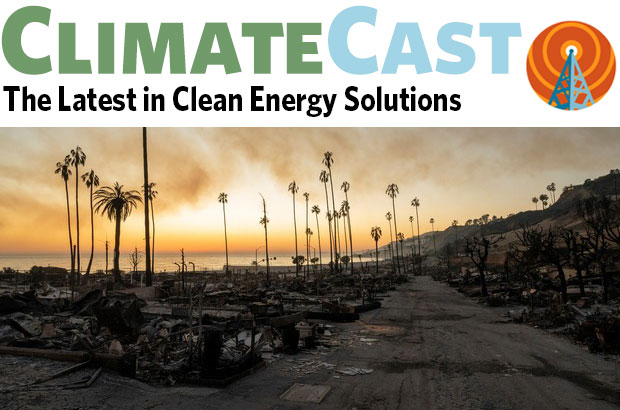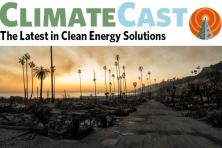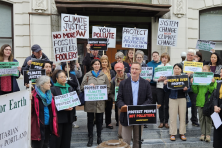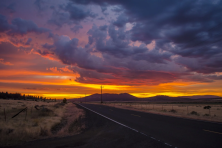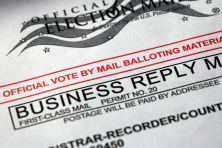LA County wildfires and the future of insurance
The devastating Los Angeles wildfires were fueled by unusually severe drought conditions and strong winds. “The evidence is clear,” writes Scientific American, “that climate change helped fuel the ferocity of these blazes.” To date, more than 16,000 structures have been destroyed; at least 28 people have died, and the number of people displaced or facing long-term health impacts is much higher. The legal battle with insurance companies operating in areas of climate disasters is already in full swing and isn't limited to California. Major insurance providers began limiting or pulling out entirely even before these recent wildfires. Regular climate disasters also translate to higher and higher premiums. California tried to address a possible insurance crisis with its California FAIR Plan Association back in 1968. Still, recent disasters eclipse FAIR’s budget, and current families are falling through the gaps while trying to rebuild. All of these issues with insurance companies highlight that climate-fueled disasters show that our very model of insurance isn't equipped to handle a more extreme climate world.
Junk fees can be employed by utilities for higher energy bills
Around the country, including in the Northwest, many families are experiencing rising rates from their utility—whether public or private, electric or fossil fuel reliant. Utilities are claiming reasons from demand from commercial users and grid upgrades to extreme weather events and labor costs. The rate shock is leading legislatures, jurisdictions, and consumer advocates to look for ways to curb hikes, including getting “junk” out of rates and turning to lawsuits to ensure the utilities are disclosing the truth and stopping higher energy bills from happening in more places.
The fire this time: Climate leadership under Trump 2.0
Newly inaugurated President Trump wasted no time testing the limits of executive power with a barrage of orders undoing years and, in some cases decades, of established approaches to immigration, workplace and social and gender inequality, corporate responsibility, and other issues. As anticipated, Trump took dramatic steps to roll back progress on climate and clean energy, declaring an “energy emergency” to be solved by increasing the country’s dependence on fossil fuels—more drilling, more liquified natural gas (LNG) exports, less renewable energy, and increasing emissions.
He ordered a stop to all federal permits for wind energy projects, posing a serious threat to wind development not only on federal lands but also offshore and on state land. Another executive order takes aim at policies intended to reduce auto tailpipe emissions, one of the largest sources of climate pollution. With this very broad order, Trump seeks not only to undo the fuel economy standards strengthened under the Biden administration but also to forbid California (and other states including Washington and Oregon) to write their own stronger standards.
A group of executive orders targeted several Biden-era environmental justice policies, combining Trump’s zeal for wrecking progressive climate policy with his interest in rolling back racial and economic justice measures.
The Trump administration also immediately withdrew the US from the Paris Climate Agreement, again signaling a profound retreat from global climate leadership. Only four nations are now refusing to join negotiated commitments to reduce climate pollution: Iran, Libya, Yemen, and the US. Domestically, Trump has directed federal agencies to immediately stop disbursing funds appropriated through the Inflation Reduction Act (IRA), creating massive uncertainty over tens of billions of dollars already dedicated to pollution-reducing projects across the country.
State governments, already the source of some of the strongest climate protection policies, will be watching closely as federal agencies and the courts figure out what Trump’s orders mean, for example, for IRA-funded projects on the ground. The Seattle Times detailed what Trump’s climate policy rollbacks will mean for Washington state and local governments and businesses. Trump may be able to slow state-level climate progress in some areas requiring federal funding, says WA State Rep. Joe Fitzgibbon, but the core provisions of the Climate Commitment Act and other state climate laws do not depend on federal leadership, which, for now at least, is lacking.
Finally, as Jeva Lange notes in Heatmap News, “executive orders are not the automatic rule of law; many of the policies will face time-consuming new rulemaking processes or legal challenges.” Lawsuits challenging some or all of these rash executive orders are all but certain, with immediate criticism coming from state and local officials, security experts and others.
One thing you can do:
Our Washington- and Oregon-based ClimateCast readers are no strangers to rising to meet the need for community relief from wildfire devastation. LA County now faces catastrophic loss and we encourage you to visit this resource hub for all kinds of wildfire relief funds and efforts. There are many ways to support families, small businesses, and first responders, as well as specific funds for Black and Latino communities.
Onward/Pa' lante
